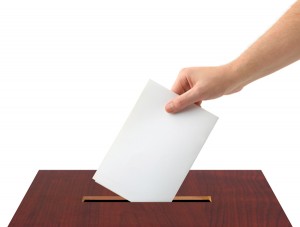 By Steve Brawner
By Steve Brawner
© 2016 by Steve Brawner Communications, Inc.
Get ready to see a lot of polls in the coming months. One of the latest by Fox News has the presidential race the closest it’s been in a while: Hillary Clinton leads Donald Trump, 48-42 percent and by only two points, 41-39, when the Libertarian and Green Party candidates are included. Another poll by Suffolk University and USA Today has Clinton up by seven points in both a two-person and four-person race.
Even the best of polls is a snapshot of a given moment. Public opinion can shift a few points in either direction based on the latest news or maybe whatever phase the moon is in. But certain realities – particularly the Electoral College and the Democrats’ demographic advantages – won’t change, and those are better predictors of what will happen in November.
The constitutional realty is that presidents are not elected through a national election but through 51 separate elections in the states and Washington, D.C., with the winner chosen by the Electoral College. There, the numbers currently work in the Democrats’ favor, as noted by national political analyst Charlie Cook in a speech to economic developers in Little Rock Monday. Eighteen states with 242 Electoral College votes have voted for the Democrat in each of the last last six elections. If Clinton holds those blue states, she only needs 28 votes elsewhere.
In contrast, only 13 states with 103 votes have been so solidly Republican, though others are leaning that direction. Arkansas, for example, has voted Republican in the last four elections after choosing favorite son Bill Clinton in 1992 and 1996, but it’s not likely to treat Hillary Clinton as a favorite daughter. Still, the Electoral College math means Republicans must win almost every swing state.
Meanwhile, Republicans face the reality that the nation’s demographics are changing. As Cook noted, the electorate that was 87 percent white in 1992 will be about 70 percent white this year, which means Republicans do best among the part of the population that is shrinking as a percentage. In 2012, 93 percent of African-Americans and 71 percent of Hispanics voted for President Obama, according to an analysis by the Washington Post. Those numbers are not likely to improve for Republicans this year – not with Trump at the top of the ticket.
Meanwhile, Democrats are leading among the demographic group that will compose future electorates: young people. In a recent Pew Research Center survey, Clinton led among voters ages 18-29 with 47 percent of the vote. Trump had only 21 percent of that group’s vote – less even than the Libertarian candidate, former New Mexico Gov. Gary Johnson, who had 22 percent support.
Republicans are counting on the fact that those young voters will become more conservative as they grow older and start paying property taxes on their Buicks, and no doubt some will change their views. But 47-21 percent is a big lead.
So Clinton has an advantage in areas that won’t change in the next two months: the Electoral College and the nation’s demographic realities.
But elections are just a poll taken in November, which means they can be determined by temporary things. As Cook noted, both Clinton and Trump have such high negative ratings that neither will ever gain a huge advantage. (“If Republicans had nominated a potted plant, they’d have had a pretty good chance to win,” he said.) A terrorist attack, an economic dip or a Clinton scandal could turn the election.
Also, Clinton, who has been playing the game better than Trump, could start playing it worse. She could lose the debates. While he was meeting with the president of Mexico, she has been hiding out, avoiding the press and raising money from rich donors – in other words, as others have pointed out, playing the “prevent defense” that never seems to work in football. Finally, let’s not overlook the importance of third party candidates, who can really mess with the numbers.
Democrats have won four of the last six elections and the popular vote in five of them. Cook expects Clinton to continue that trend, winning comfortably but not overwhelmingly by 3-5 points. He thinks Republicans won’t solve their big problems yet, but Democrats will overreach and the pendulum will swing back.
Parties are made of people, after all, and people make mistakes, sometimes learn from them, and then make new ones. Poll results may change, but human nature doesn’t.
